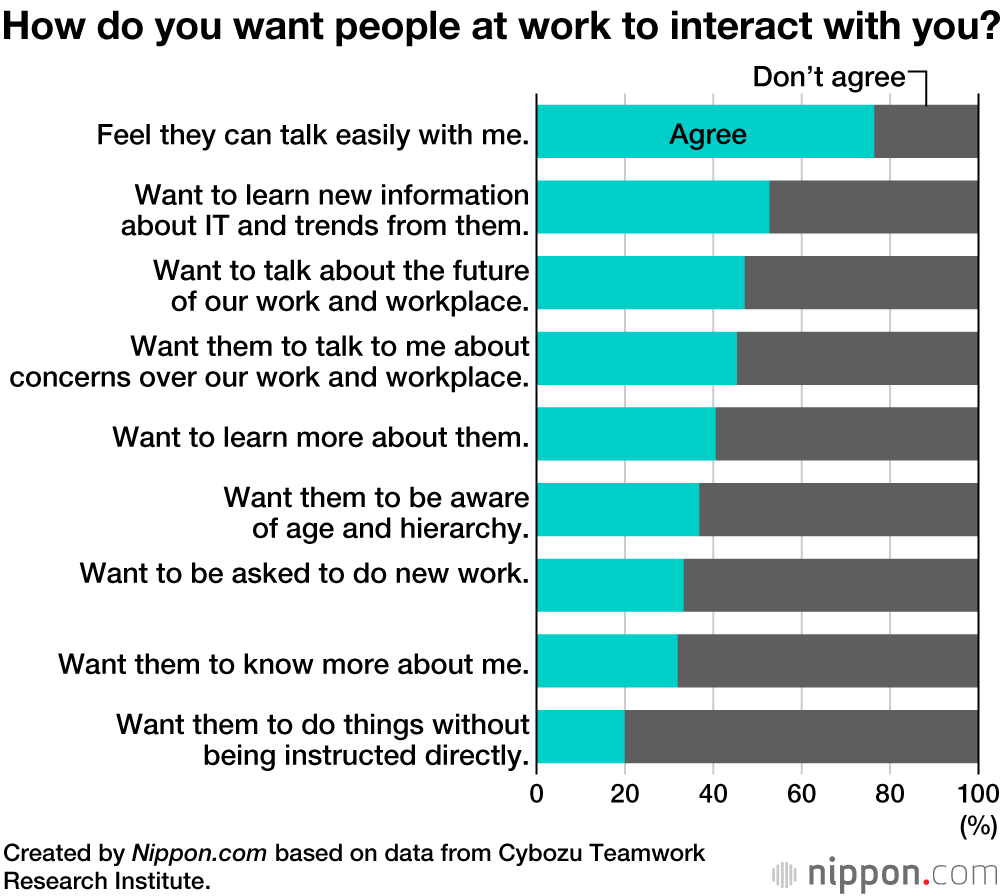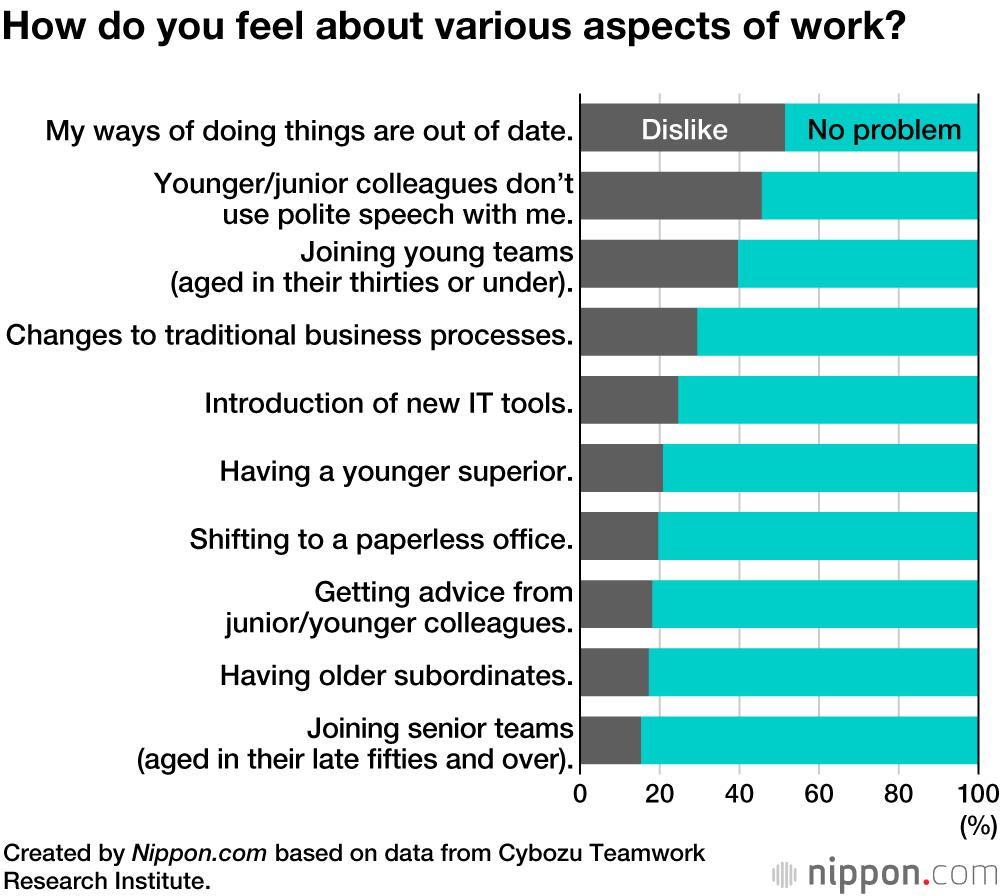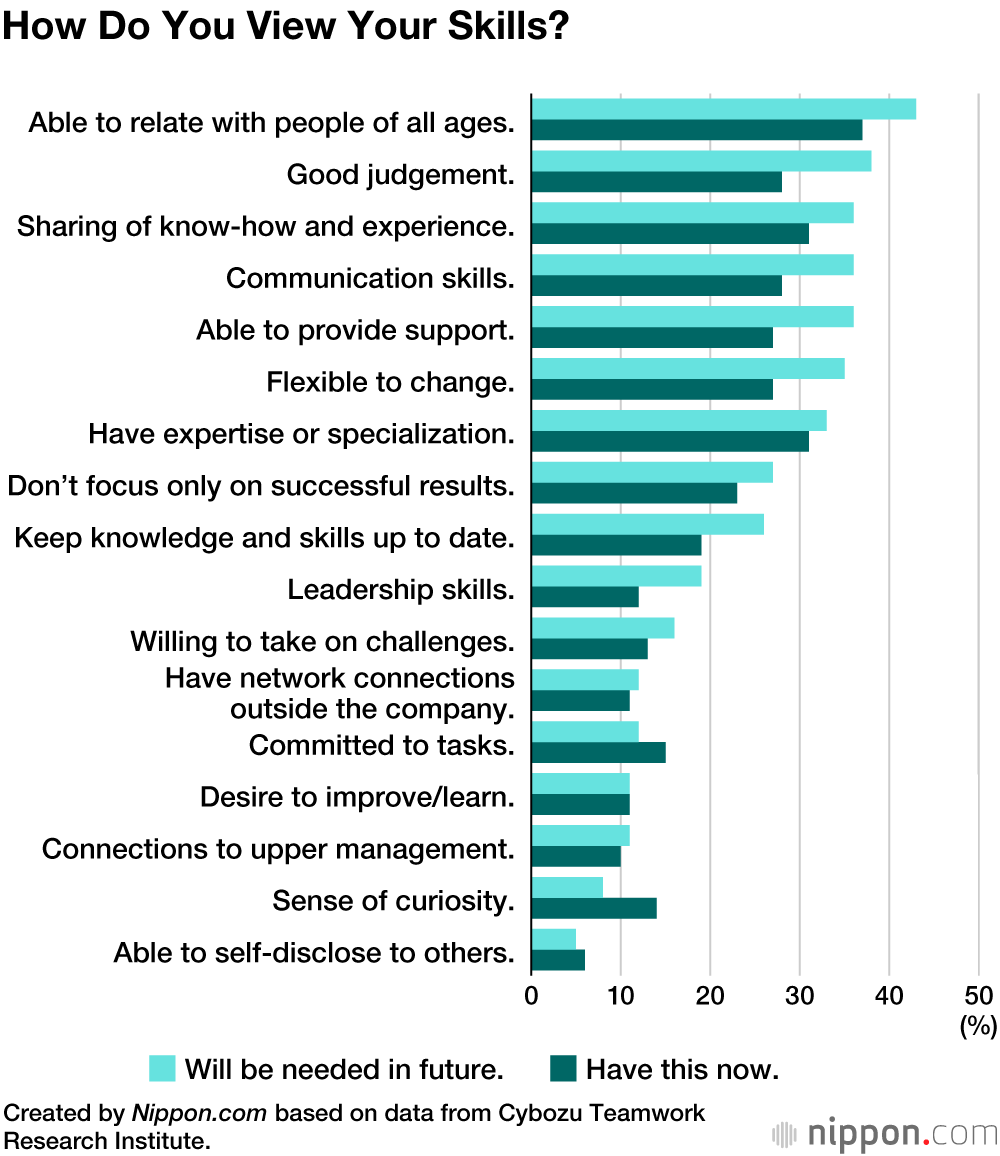
Senior Workers in Japan Say No Problem to Paperless Offices and Younger Bosses
Society Work- English
- 日本語
- 简体字
- 繁體字
- Français
- Español
- العربية
- Русский
The Act on Stabilization of Employment of Elderly Persons, amended in April 2021, requires companies to ensure there are employment opportunities for people up to the age of 70. Cybozu Teamwork Research Institute surveyed 3,093 company employees aged 55 to 64, asking about their involvement in the workplace.
When asked how they wanted people to interact with them at work, 76.4% said they want colleagues to “feel they can talk easily with me” and 52.7% wanted “to learn new information about IT and trends from them.” This was an indication that older workers are keen to communicate with the younger ones and not get left behind with the times.
When asked how they feel about different aspects of work, 51.4% answered that they did not like that “my ways of doing things are out of date.” In contrast, there were fewer negative responses to organizational changes, with only 29.4% saying “changes to traditional business processes,” 24.6% for “introduction of new IT tools,” 20.8% for “having a younger superior,” and 19.6% for “shifting to a paperless office.”
For senior workers, there was a visible gap between skills they believed they had now and what they felt would be required in the future, including for “good judgement,” “communication skills,” “able to provide support,” and being “flexible to change.”
(Translated from Japanese. Banner photo © Pixta)


